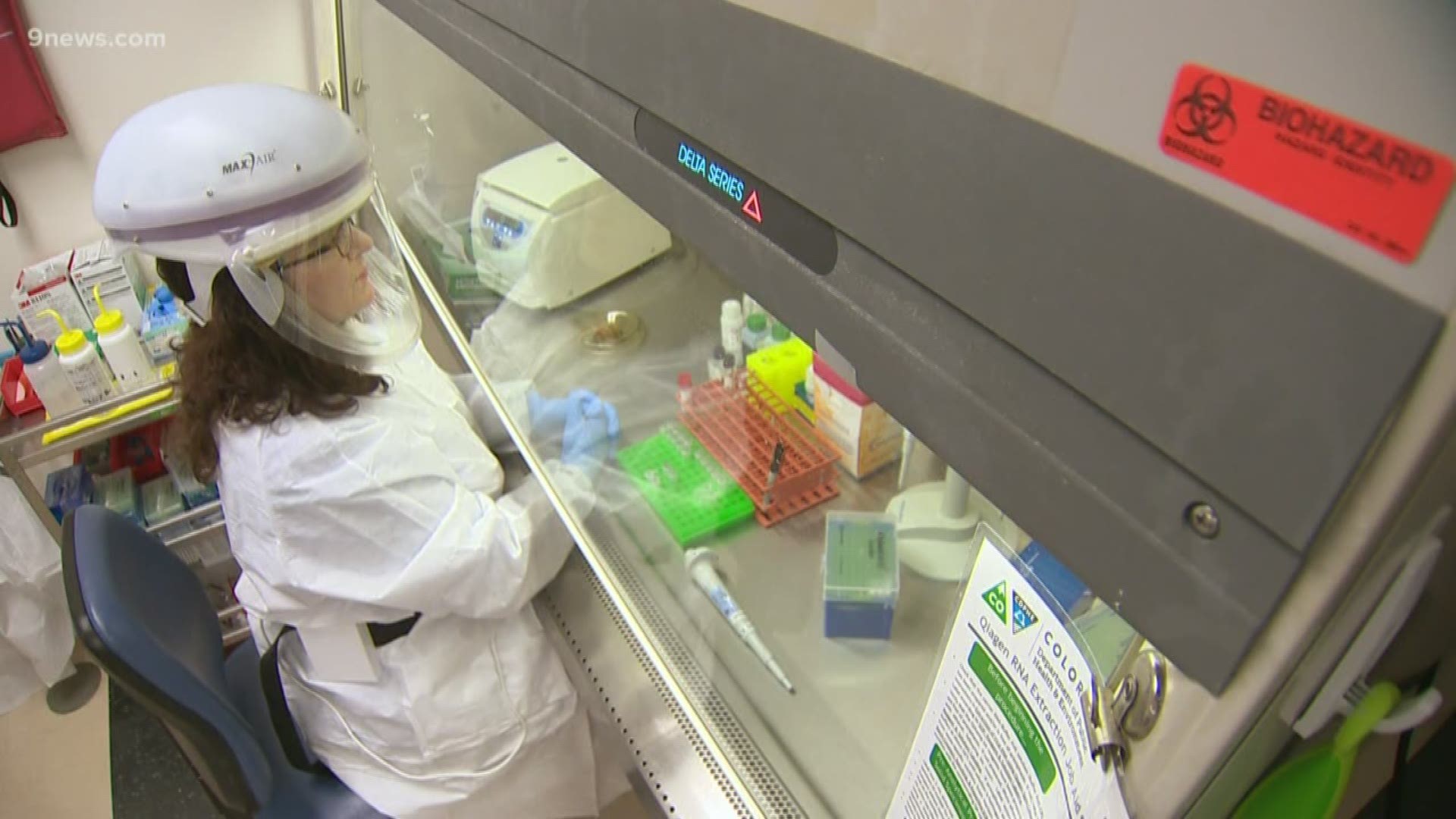DENVER — The number of people quarantined in connection with presumed positive cases of coronavirus in Colorado continues to grow. Health officials have strict rules for who is placed in quarantine and what happens if they disobey it.
According to the Denver Department of Public Health and Environment (DDPHE), "a quarantine order is a legal document with instructions to prevent individuals who have been exposed to a disease and may become infectious from potentially spreading the disease to other people."
9NEWS spoke with Cali Zimmerman, the Emergency Management Coordinator for the DDPHE, about quarantines, how they are enforced and who is placed in one.
9NEWS: What is the difference between being placed in quarantine and going into isolation?
Zimmerman: It’s important to differentiate between monitoring, quarantine and isolation. A lot of folks use them interchangeably. When we talk about quarantine, we’re keeping well individuals who might have been exposed to something contagious away from the general public. When we talk about isolation, we’re keeping a symptomatic, a sick individual, away from the general public. Those cases are either confirmed positive or suspected cases.
9NEWS: Are quarantine orders voluntary or mandatory?
Zimmerman: When we talk about quarantine, we can do it voluntarily or enforced. We have the city attorney approve these orders. We have to have justification for them. We have a real, specific reason that we think somebody was specifically exposed.
9NEWS: How long does the quarantine last?
Zimmerman: When we’re looking at COVID-19 specifically, we know the incubation is between two and 14 days. When we look at someone who could have been exposed, we take the exposure date and add 14 days. That’s how long the quarantine is.
9NEWS: How are the quarantines enforced?
Zimmerman: We do daily check-ins. We don’t go physically all the time, it depends on the level. If they are calling us and reporting their temperature and whatever symptoms they’re supposed to log, we can touch base with them and say, 'hey, were you able to stay in today, did you do anything you weren’t supposed to?' So it is a little on the honor system.
9NEWS: Is there a penalty if people don't obey them?
Zimmerman: People can be subject to up to 300 days in jail or a fine. If they don’t comply.
9NEWS: Can people say no to a quarantine?
Zimmerman: Since it is going through the city, there is an appeals process. We haven’t had that happen yet. We allow people to say no and it would go before a judge.
9NEWS: Are people quarantined at home or at a hospital?
Zimmerman: Often, quarantines are at home because they are asymptomatic so they don’t actually need any medical care. When we’re talking about isolation, same thing. If they can manage their own symptoms they stay at home in isolation. If they need to be hospitalized, then they stay in isolation there.
Here are the rules for the quarantines released by the DDPHE:
- You shall be confined to your home and shall not attend any public gathering, provided no symptoms of illness develop in the interim.
- You are not allowed to attend childcare, school, or work, provided no symptoms of illness develop in the interim.
- You may not use public transportation.
- You may not have visitors at the home unless they are determined by DDPHE to be adequately protected and have an essential need to be in the home; this is in effect until termination of these quarantine orders.
- DDPHE staff will contact you daily, with possible in-home visits as necessary, to monitor your health.
- You shall monitor your health, including logging and reporting to public health daily the following signs and symptoms:
- Fever. Take and log temperature twice daily, once in the morning and once in the evening
- Cough
- Shortness of breath or difficulty breathing.
- Chills, body aches, sore throat, headache, diarrhea, nausea, vomiting, runny nose
SUGGESTED VIDEOS | Coronavirus updates

